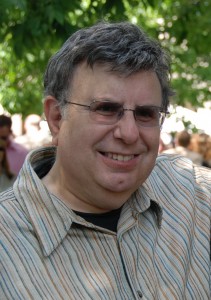Related Research Articles
Ethics is the philosophical study of moral phenomena. Also called moral philosophy, it investigates normative questions about what people ought to do or which behavior is morally right. Its main branches include normative ethics, applied ethics, and metaethics.
In metaphilosophy and ethics, metaethics is the study of the nature, scope, ground, and meaning of moral judgment, ethical belief, or values. It is one of the three branches of ethics generally studied by philosophers, the others being normative ethics and applied ethics.
Jargon or technical language is the specialized terminology associated with a particular field or area of activity. Jargon is normally employed in a particular communicative context and may not be well understood outside that context. The context is usually a particular occupation, but any ingroup can have jargon. The key characteristic that distinguishes jargon from the rest of a language is its specialized vocabulary, which includes terms and definitions of words that are unique to the context, and terms used in a narrower and more exact sense than when used in colloquial language. This can lead outgroups to misunderstand communication attempts. Jargon is sometimes understood as a form of technical slang and then distinguished from the official terminology used in a particular field of activity.
Jus commune or ius commune is Latin for "common law" in certain jurisdictions. It is often used by civil law jurists to refer to those aspects of the civil law system's invariant legal principles, sometimes called "the law of the land" in English law. While the ius commune was a secure point of reference in continental European legal systems, in England it was not a point of reference at all. The phrase "the common law of the civil law systems" means those underlying laws that create a distinct legal system and are common to all its elements.

John Leslie Mackie was an Australian philosopher. He made significant contributions to ethics, the philosophy of religion, metaphysics, and the philosophy of language. Mackie had influential views on metaethics, including his defence of moral scepticism and his sophisticated defence of atheism. He wrote six books. His most widely known, Ethics: Inventing Right and Wrong (1977), opens by boldly stating, "There are no objective values." It goes on to argue that because of this, ethics must be invented rather than discovered.
An innings is one of the divisions of a cricket match during which one team takes its turn to bat. Innings also means the period in which an individual player bats. In cricket and rounders, "innings" is both singular and plural; this contrasts with baseball and softball in which the singular is "inning".

Robert Boyce Brandom is an American philosopher who teaches at the University of Pittsburgh. He works primarily in philosophy of language, philosophy of mind and philosophical logic, and his academic output manifests both systematic and historical interests in these topics. His work has presented "arguably the first fully systematic and technically rigorous attempt to explain the meaning of linguistic items in terms of their socially norm-governed use, thereby also giving a non-representationalist account of the intentionality of thought and the rationality of action as well."
The open-question argument is a philosophical argument put forward by British philosopher G. E. Moore in §13 of Principia Ethica (1903), to refute the equating of the property of goodness with some non-moral property, X, whether natural or supernatural. That is, Moore's argument attempts to show that no moral property is identical to a natural property. The argument takes the form of a syllogism modus tollens:
In meta-ethics, expressivism is a theory about the meaning of moral language. According to expressivism, sentences that employ moral terms – for example, "It is wrong to torture an innocent human being" – are not descriptive or fact-stating; moral terms such as "wrong", "good", or "just" do not refer to real, in-the-world properties. The primary function of moral sentences, according to expressivism, is not to assert any matter of fact but rather to express an evaluative attitude toward an object of evaluation. Because the function of moral language is non-descriptive, moral sentences do not have any truth conditions. Hence, expressivists either do not allow that moral sentences to have truth value, or rely on a notion of truth that does not appeal to any descriptive truth conditions being met for moral sentences.
Evolutionary ethics is a field of inquiry that explores how evolutionary theory might bear on our understanding of ethics or morality. The range of issues investigated by evolutionary ethics is quite broad. Supporters of evolutionary ethics have argued that it has important implications in the fields of descriptive ethics, normative ethics, and metaethics.
Metaepistemology is the branch of epistemology and metaphilosophy that studies the underlying assumptions made in debates in epistemology, including those concerning the existence and authority of epistemic facts and reasons, the nature and aim of epistemology, and the methodology of epistemology.

The four causes or four explanations are, in Aristotelian thought, categories of questions that explain "the why's" of something that exists or changes in nature. The four causes are the: material cause, the formal cause, the efficient cause, and the final cause. Aristotle wrote that "we do not have knowledge of a thing until we have grasped its why, that is to say, its cause." While there are cases in which classifying a "cause" is difficult, or in which "causes" might merge, Aristotle held that his four "causes" provided an analytical scheme of general applicability.
Philosophy of language investigates the nature of language and the relations between language, language users, and the world. Investigations may include inquiry into the nature of meaning, intentionality, reference, the constitution of sentences, concepts, learning, and thought.

Russ Shafer-Landau is an American philosopher and Professor of Philosophy at the University of Wisconsin, Madison.

Allan Stanley Gotthelf was an American philosopher. He was a scholar of the philosophies of both Aristotle and Ayn Rand.

Philosophy is a systematic study of general and fundamental questions concerning topics like existence, reason, knowledge, value, mind, and language. It is a rational and critical inquiry that reflects on its own methods and assumptions.
Ethics is, in general terms, the study of right and wrong. It can look descriptively at moral behaviour and judgements; it can give practical advice, or it can analyse and theorise about the nature of morality and ethics.
Dorit Bar-On is a Professor of Philosophy at the University of Connecticut and Director of the Expression, Communication, and the Origins of Meaning (ECOM) Research Group. Her research focuses on philosophy of language, philosophy of mind, epistemology, and metaethics. She previously held positions at the University of Rochester and UNC-Chapel Hill, where she was the Zachary Smith Distinguished Term Professor of Research and Undergraduate Education from 2014 to 2015.

Hannah Dreier is an American journalist and staff writer for The New York Times. Previously, she was Venezuela correspondent for The Associated Press during the first four years of Nicolás Maduro's presidency. In 2016, she was kidnapped by the Venezuelan secret police and threatened because of her work. She has also written for ProPublica and The Washington Post.
James Dreier is an American philosopher and Judy C. Lewent and Mark L. Shapiro Professor of Philosophy at Brown University. He is known for his work in metaethics, especially on the subjects of expressivism and metametaethics. Dreier is an associate editor of Ethics (journal).